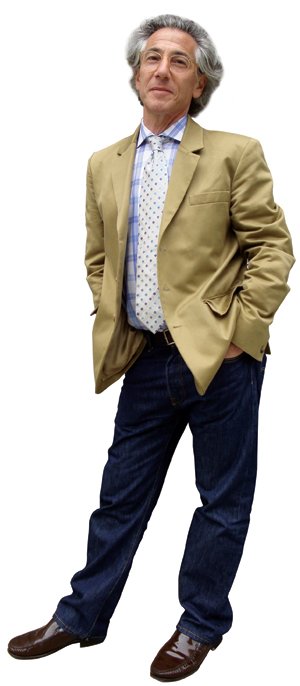Ira Silverberg has made his career cutting paths for writers across the American literary landscape. He began his work in publishing as publicity director of Grove Press, where he promoted literature by avant-garde authors such as Samuel Beckett and Marguerite Duras. He went on to run a public relations firm serving small presses and literary magazines, and later moved to an editorial position at High Risk Books, a New York City–based imprint of U.K. press Serpent’s Tail, where he published William S. Burroughs and Gary Indiana. After a brief return to Grove in the mid-nineties, Silverberg became an agent, first with Donadio & Olson—where he represented authors such as Ishmael Beah and Adam Haslett—and most recently with Sterling Lord Literistic. Earlier this year Silverberg entered a new phase of literary advocacy, taking on the role of literature director of the National Endowment for the Arts (NEA), succeeding Jon Parrish Peede. As literature director, Silverberg oversees how funds are allocated among the fields of poetry, prose, and translation, and also supervises grant panels’ decisions on which applicants receive funding. As he settled into his new position, Silverberg spoke about what drew him to literature and how he’s currently serving the field.

What influenced you to pursue a literary career in the late seventies and early eighties?
It was an exciting time to be a young person in New York City. The alternative cultural scene was in full bloom. A doorman at the nightclub Hurrah—when I was still in high school—handed me a copy of Edmund White’s Nocturnes for the King of Naples. It made an enormous impression. Around the same time a classmate turned me on to William S. Burroughs’s Naked Lunch. I fell in love my sophomore year of college, and the result was that I moved to Lawrence, Kansas, and enrolled at the university there. My people, as it were, were part of Burroughs’s support team. That’s when my education in literature really began. I wouldn’t be who I am today had Burroughs not been one of my mentors.
How did you come to be the literature director at the NEA?
I was asked by the outgoing director to be on a panel in August 2011. He told me he was leaving and I thought, “Maybe I’m ready—maybe it’s time to go back to my roots. Maybe it’s time to fight the good fight in a different fashion.” So I applied for the job.
What are you working on now?
I’m spending a lot of time on the phone with our grantees, informally surveying the field. What I’m sensing is that there’s great need for technological help in the new digital age. We’re very concerned with innovation in the arts around here, so I think we’ll be exploring the role of technology in publishing and writing quite a lot.
How many writers apply to the NEA for fellowships each year?
Well over a thousand.
Do you have any recommendations for potential grant applicants?
The NEA website, www.arts.gov, is an incredible resource for applicants—our guidelines are there, our philosophy is clearly outlined, and the history of what we’ve funded is there. My recommendation is that potential applicants study the site before they write an application.
Is there one project the NEA has funded recently that stands out?
There are tons—particularly in this department—that make me proud. We support the best nonprofit publishers and literary magazines in America. We support literary service organizations that are making a difference in the lives of writers. We support presenters who are bringing all kinds of authors to all kinds of audiences. I don’t feel as if I could mention one without mentioning many.
Noah Charney is the author of the best-sellers Stealing the Mystic Lamb (PublicAffairs, 2010), a book of nonfiction, and The Art Thief (Atria, 2007), a novel, and is a professor of art history and writing. His blog is the Secret History
of Art (blogs.artinfo.com/secrethistoryofart).








